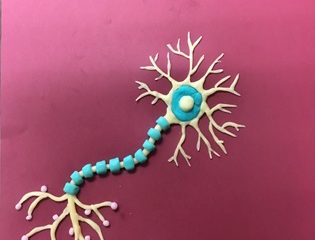
I hope everyone enjoyed Father’s Day 2012! Here is a picture of my young family many years ago celebrating a family activity.
Here is what we are reading today:
“From factory workers to Wall Street bankers, a reasonable proficiency in math is a crucial requirement for most well-paying jobs in a modern economy. Yet, over the past 30 years, mathematics achievement of U.S. high school students has remained stagnant — and significantly behind many other countries, including China, Japan, Finland, the Netherlands and Canada.”
“Test your sensitivity to disgust and take part in a real science experiment.
It has 20 questions and should take between 5-10 minutes.
The questionnaire is split into two sections. Section one consists of 19 questions. Section two consists of a single vote.
It was developed by Dr Val Curtis of the London School of Hygiene and Tropical Medicine.”
“In a first of its kind study in the U.S., researchers at the Perelman School of Medicine at the University of Pennsylvania have shown that the addition of graphic warning labels on cigarette packaging can improve smokers’ recall of the warning and health risks associated with smoking. The new findings are published online-first in the American Journal of Preventive Medicine.”
“A study by University of Iowa neuroscientist and neuro-marketing expert William Hedgcock confirms previous studies that show self-control is a finite commodity that is depleted by use. Once the pool has dried up, we’re less likely to keep our cool the next time we’re faced with a situation that requires self-control.
But Hedgcock’s study is the first to actually show it happening in the brain using fMRI images that scan people as they perform self-control tasks. The images show the anterior cingulate cortex (ACC)—the part of the brain that recognizes a situation in which self-control is needed and says, “Heads up, there are multiple responses to this situation and some might not be good”—fires with equal intensity throughout the task.”
“Led by developmental biologist Hazel Sive, the researchers set out to explore a group of about two dozen genes known to be either missing or duplicated in about 1 percent of autistic patients. Most of the genes’ functions were unknown, but the MIT study revealed that nearly all of them produced brain abnormalities when deleted in zebrafish embryos.”
“Researchers at the University of Iowa, together with colleagues from the California Institute of Technology and New York University, have discovered how a part of the brain helps predict future events from past experiences. The work sheds light on the function of the front-most part of the frontal lobe, known as the frontopolar cortex, an area of the cortex uniquely well developed in humans in comparison with apes and other primates.
Making the best possible decisions in a changing and unpredictable environment is an enormous challenge. Not only does it require learning from past experience, but it also demands anticipating what might happen under previously unencountered circumstances. Past research from the UI Department of Neurology was among the first to show that damage to certain parts of the frontal lobe can cause severe deficits in decision making in rapidly changing environments. The new study from the same department on a rare group of patients with damage to the very frontal part of their brains reveals a critical aspect of how this area contributes to decision making. The findings were published June 19 in the Journal of Neuroscience.”


